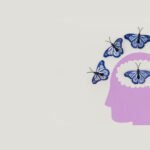
Emotional Intelligence in Learning: The EQ Advantage
Have you ever wondered why some students excel academically and socially while others struggle, despite having similar levels of intelligence?
The answer might lie in something called emotional intelligence, or EQ.
In the fast-paced and ever-evolving landscape of education, the importance of EQ in learning cannot be overstated. In this article, we’ll explore what emotional intelligence is, why it matters in education, and how you can harness its power to gain the EQ advantage in your learning journey.
So, what exactly is emotional intelligence? At its core, EQ refers to the ability to recognize, understand, and manage one’s own emotions, as well as to recognize, understand, and influence the emotions of others.
It encompasses a range of skills, including self-awareness, self-regulation, empathy, and relationship management. While traditional measures of intelligence (IQ) focus on cognitive abilities, EQ focuses on the social and emotional aspects of intelligence.
In the context of education, emotional intelligence plays a crucial role in shaping students’ academic performance, interpersonal relationships, and overall well-being. Research has shown that students with higher levels of EQ tend to perform better academically, exhibit greater social competence, and experience fewer behavioral problems in school. Moreover, EQ has been linked to increased resilience, better stress management, and improved mental health outcomes.
But how can you develop and cultivate your emotional intelligence? Like any skill, EQ can be nurtured and strengthened over time with practice and intentionality. One way to enhance your EQ is through self-awareness, which involves recognizing and understanding your own emotions, strengths, weaknesses, and triggers. Journaling, mindfulness practices, and self-reflection exercises can help you become more attuned to your emotional experiences and responses.
Another key aspect of EQ is self-regulation, which involves managing and controlling your emotions, impulses, and behaviors. Strategies such as deep breathing exercises, mindfulness meditation, and cognitive reappraisal techniques can help you develop greater emotional self-control and resilience in the face of challenges.
Cultivating empathy—the ability to understand and share the feelings of others—is essential for building strong interpersonal relationships and fostering a sense of connection and belonging. Engaging in perspective-taking exercises, actively listening to others, and practicing compassion and kindness can help you develop your empathic skills and strengthen your social bonds.
Learning effective communication and conflict resolution skills can help you navigate interpersonal conflicts and build healthier relationships with peers, teachers, and family members. By honing your assertiveness, active listening, and negotiation skills, you can communicate more effectively, resolve conflicts constructively, and build trust and rapport with others.
Emotional intelligence is a critical skill that can significantly impact your success and well-being in the ever-evolving landscape of education. By developing and cultivating your EQ, you can gain a competitive advantage in your learning journey, build stronger relationships, and thrive academically, socially, and emotionally.



